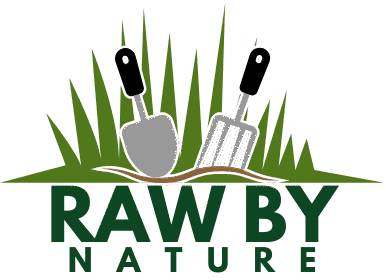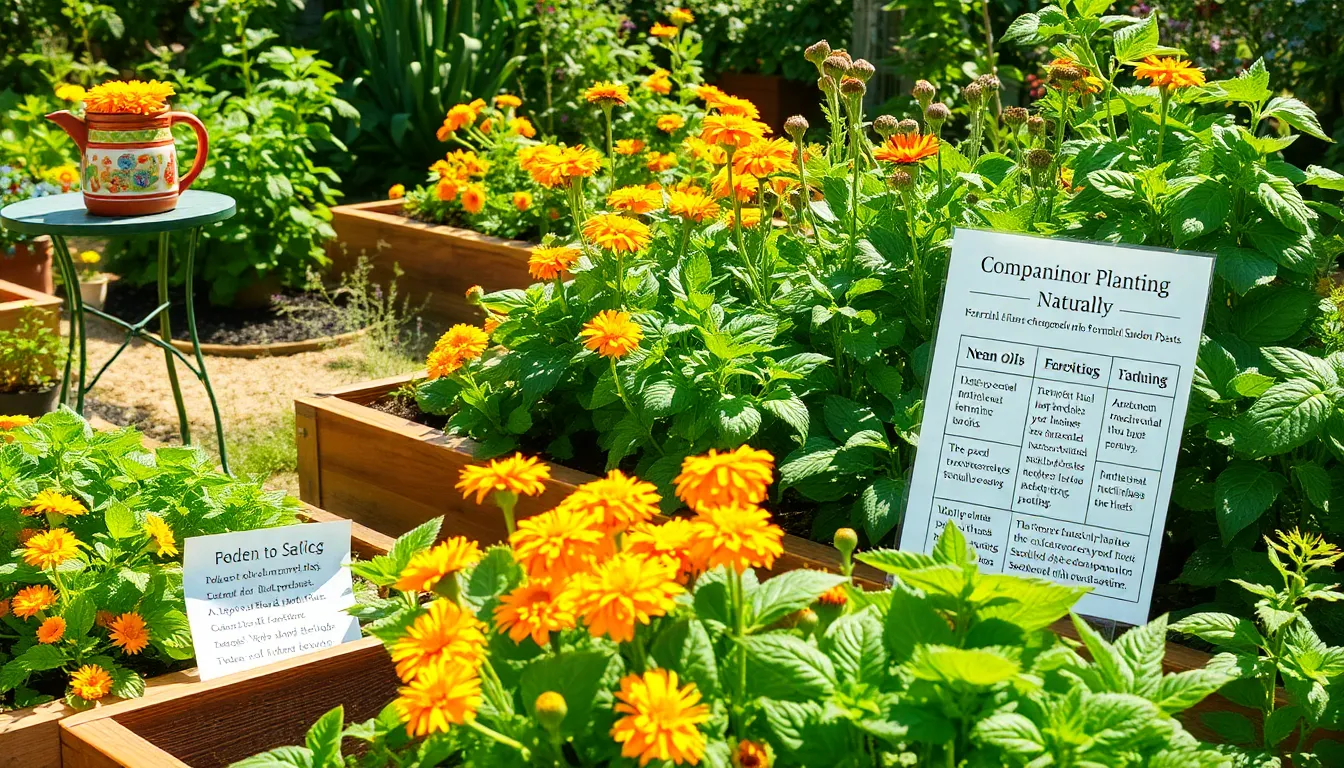Gardening should be a peaceful, rewarding endeavor, yet there’s nothing quite like the frustration of finding your hard work nibbled away by unwelcome visitors. Whether you’re a novice planting your first bed or a seasoned green thumb adding to your verdant masterpiece, learning how to naturally repel garden pests is crucial for cultivating a thriving sanctuary. This gentle approach not only protects your plants but also maintains the delicate balance of your garden’s ecosystem, allowing beneficial insects to flourish alongside your flowers and vegetables.
In this article, you’ll discover a variety of natural strategies to safeguard your garden from these persistent intruders. From concocting homemade sprays with ingredients you likely have in your kitchen, to planting pest-repelling flora that enhance your garden’s beauty, you’ll soon have a toolkit of eco-friendly solutions at your disposal. We aim to empower you with knowledge that makes gardening both a nurturing experience and an exercise in environmental stewardship. By the end, you’ll feel confident in your ability to keep your garden healthy and vibrant, naturally warding off pests without reaching for harsh chemicals.
Aphid Infestation on Roses
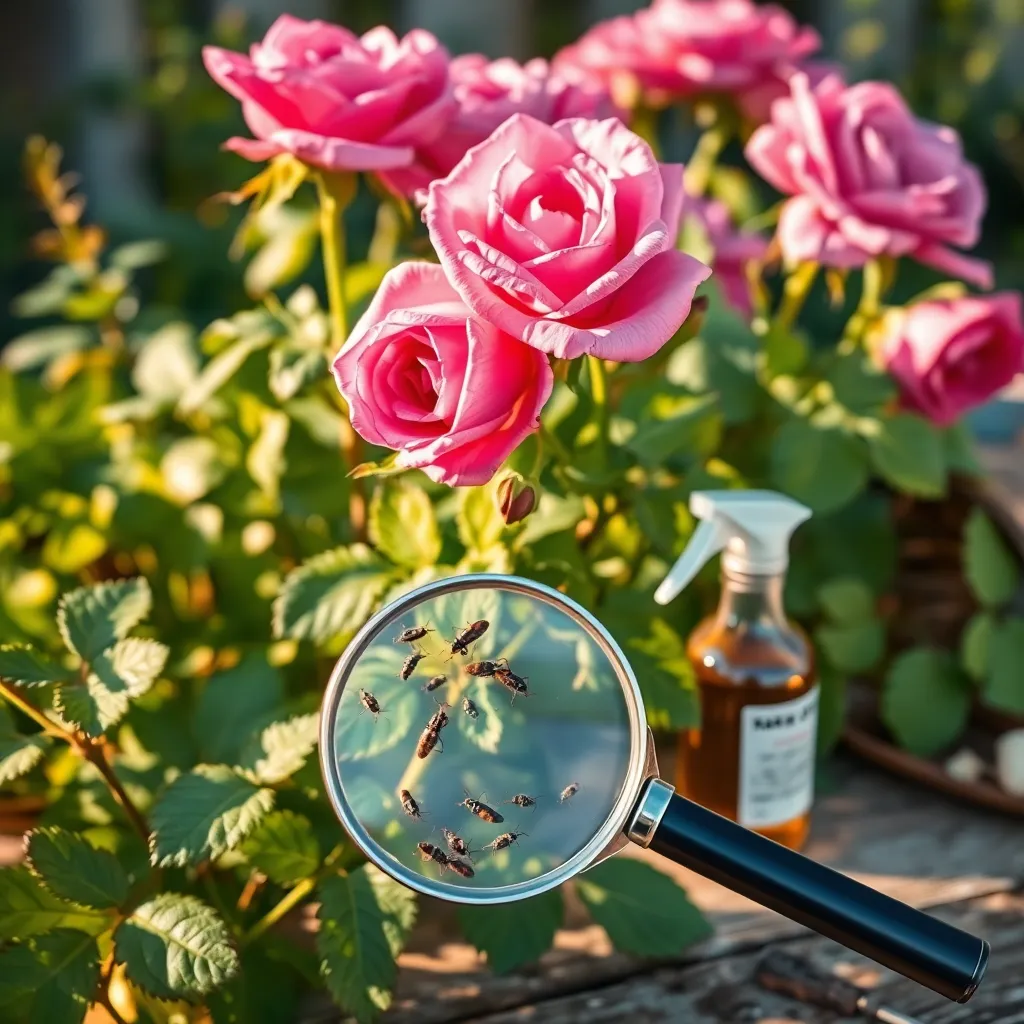
Roses, beloved for their beauty and fragrance, are unfortunately prone to aphid infestations. These tiny pests can damage your plants by sucking sap, which weakens the roses and can lead to stunted growth.
To manage an aphid problem naturally, start by introducing beneficial insects like ladybugs into your garden. Ladybugs feed on aphids and can help keep their population in check, providing a natural pest control solution.
Creating a healthy growing environment is crucial for preventing infestations. Ensure your roses are planted in well-draining soil and receive at least six hours of sunlight daily, as healthy plants are more resilient to pests.
For more persistent aphid issues, try using a homemade insecticidal soap spray. Mix a few drops of dish soap with water in a spray bottle and apply it directly on the aphids; this mixture can suffocate the pests without harming the plant.
Begin by spraying in the morning or evening to avoid leaf burn from the sun. Repeat the application every few days until you notice a reduction in aphid numbers.
- Introduce ladybugs or lacewings to naturally reduce aphid populations.
- Maintain healthy soil and ensure proper watering to strengthen plants.
- Use insecticidal soap sprays as a safe, non-toxic method to tackle infestations.
Regular inspection of your roses can prevent aphid issues from escalating. By proactively managing aphids, you can enjoy vibrant, healthy roses throughout the growing season.
Slugs Devouring Leafy Greens
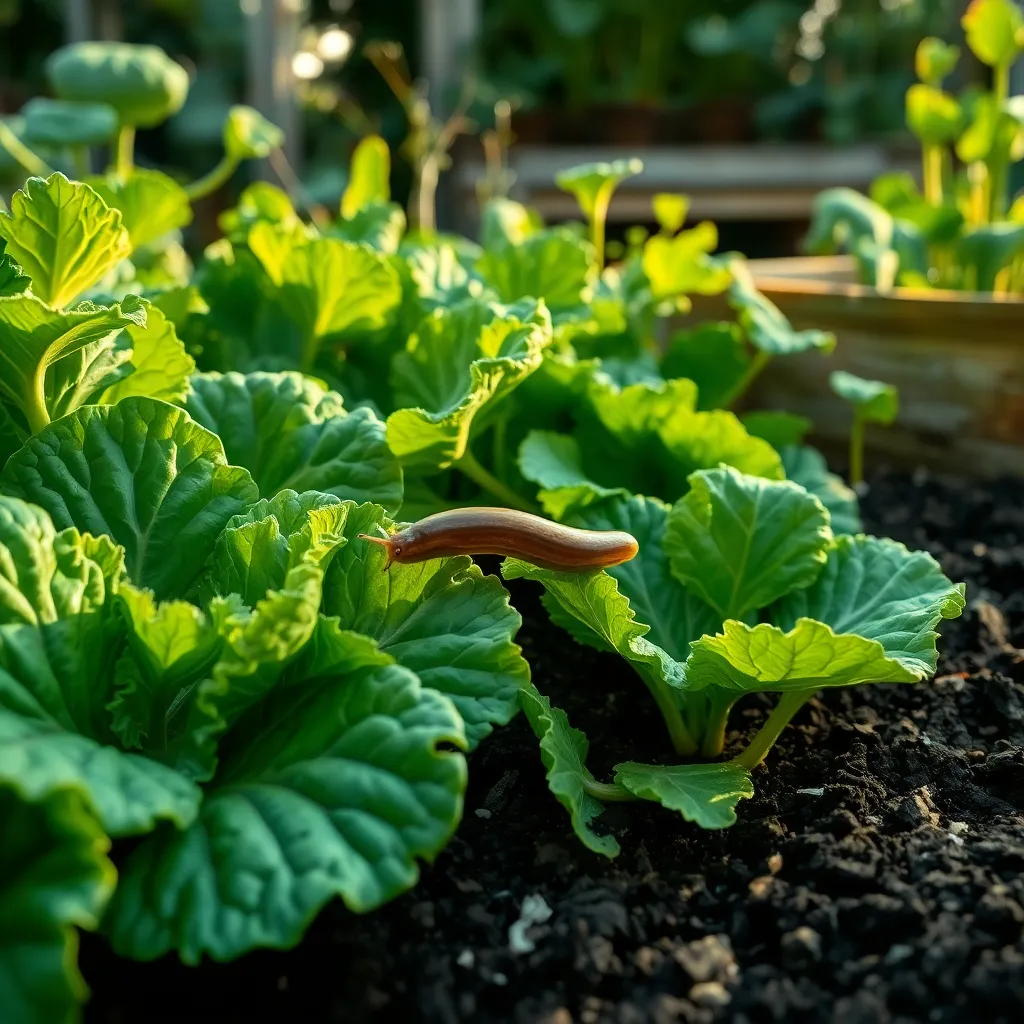
Slugs can be a persistent problem for gardeners growing leafy greens, devouring them overnight. To deter these pests naturally, consider implementing a few tried-and-true methods that won’t harm your plants or the environment.
One effective technique is to create a barrier around your plants using copper tape or crushed eggshells, which slugs find difficult to cross. Additionally, you can utilize natural predators like frogs and birds by creating a welcoming habitat with water features and native plants.
Another approach is to water your garden in the morning rather than the evening, as slugs are more active in damp conditions. By reducing moisture levels at night, you can make your garden less appealing to these nocturnal feeders.
For those willing to get hands-on, manually removing slugs during dusk or early morning can significantly reduce their population. Wearing gloves, check under leaves and along the soil line where slugs often hide, and dispose of them far from your garden.
Spider Mites on Indoor Plants
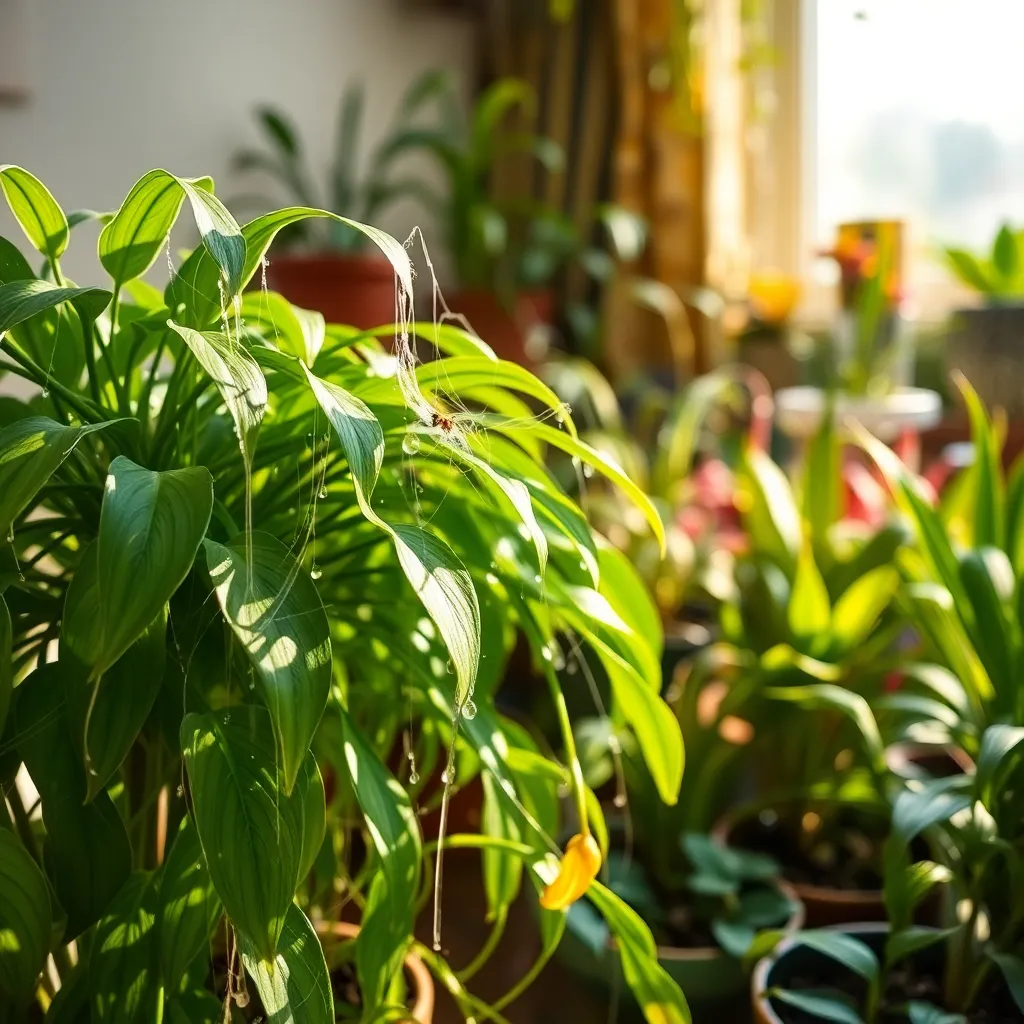
Spider mites are one of the most common pests affecting indoor plants, often thriving in warm, dry environments. To naturally repel these tiny invaders, start by increasing the humidity around your plants, as spider mites dislike moist conditions.
Misting your plants regularly can help create a less favorable environment for spider mites. Additionally, consider using a homemade insecticidal soap spray made from water and a few drops of mild dish soap to keep the mites at bay.
For a more advanced approach, introduce beneficial predatory insects like ladybugs or predatory mites, which feed on spider mites without harming your plants. This method is especially effective in a controlled indoor environment where these beneficial insects can thrive.
Regularly inspect the undersides of leaves for any signs of webbing or tiny moving dots, which indicate the presence of spider mites. Early detection and prompt action are crucial to preventing these pests from spreading to other plants in your indoor garden.
Caterpillars on Vegetable Crops
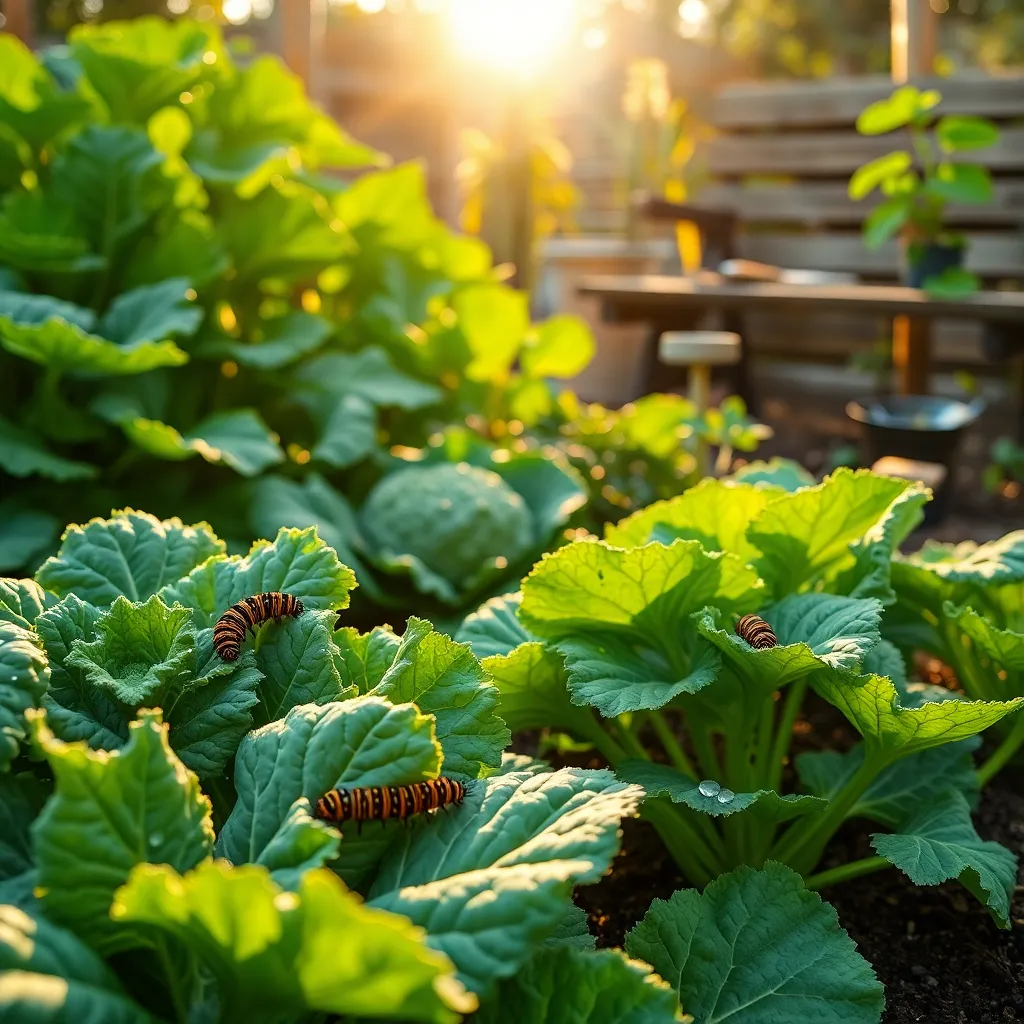
Caterpillars can be a common nuisance on vegetable crops, munching through leaves and sometimes even fruits. To manage these pests naturally, consider introducing beneficial insects like ladybugs and parasitic wasps, which can help reduce caterpillar populations.
Another effective method is to use physical barriers, such as floating row covers, to prevent caterpillars from accessing your plants. Ensure these covers are securely fastened to the ground to block any entry points and allow for proper air circulation under the cover.
Inspect your plants regularly, particularly the undersides of leaves, for eggs or young caterpillars. Handpicking caterpillars can be a viable option for smaller gardens; dropping them into a bucket of soapy water is an effective way to dispose of them.
For a more advanced approach, you can create a homemade spray using neem oil, which is both effective and safe for organic gardening. Mix one tablespoon of neem oil with a gallon of water and a few drops of dish soap, then spray it onto affected plants every week or after it rains.
Ants Invading Fruit Trees

Ants can become a nuisance on fruit trees, often protecting aphids and other pests in exchange for their sweet honeydew. To naturally deter ants, you can use a simple barrier method by wrapping the tree trunk with a sticky tape or applying a band of horticultural glue, which prevents ants from climbing up.
Maintaining a healthy fruit tree is crucial to minimizing pest invasions. Ensure your tree is planted in well-draining soil and receives adequate sunlight, usually around 6 to 8 hours a day, to promote vigorous growth and resilience against pests.
Utilizing natural repellents can be very effective in keeping ants at bay. Sprinkling diatomaceous earth around the base of the tree disrupts their exoskeletons, acting as a physical barrier without harming beneficial insects or the environment.
For a more advanced approach, consider introducing beneficial insects like ladybugs or lacewings to your garden, which prey on aphids and reduce the ant’s food source. Regularly inspect your trees for signs of aphids or scale insects and wash them off with a strong stream of water to keep these pests under control.
Conclusion: Growing Success with These Plants
In navigating the garden of a healthy relationship, understanding and implementing key concepts can make all the difference. We’ve explored the importance of communication, the role of empathy, the power of shared goals, the necessity of mutual respect, and the art of compromise. Each of these elements acts as a natural repellant to the pests that can invade and weaken the bond between partners.
As your actionable next step, choose one concept you’ve identified as needing improvement in your relationship and commit to nurturing it daily. Perhaps start with a simple yet meaningful gesture, like setting aside time for a heartfelt conversation or actively listening to your partner’s perspective.
Remember, cultivating a flourishing relationship is an ongoing journey. Bookmark this article as a handy guide to revisit these foundational concepts whenever you need a refresher or inspiration.
Looking ahead, by embracing these principles, you’re not just maintaining your relationship — you’re setting the stage for continuous growth and deeper connection. Empower yourself with this knowledge, and watch your relationship blossom into something truly beautiful and lasting. Save this article now for a future filled with love and mutual understanding.
